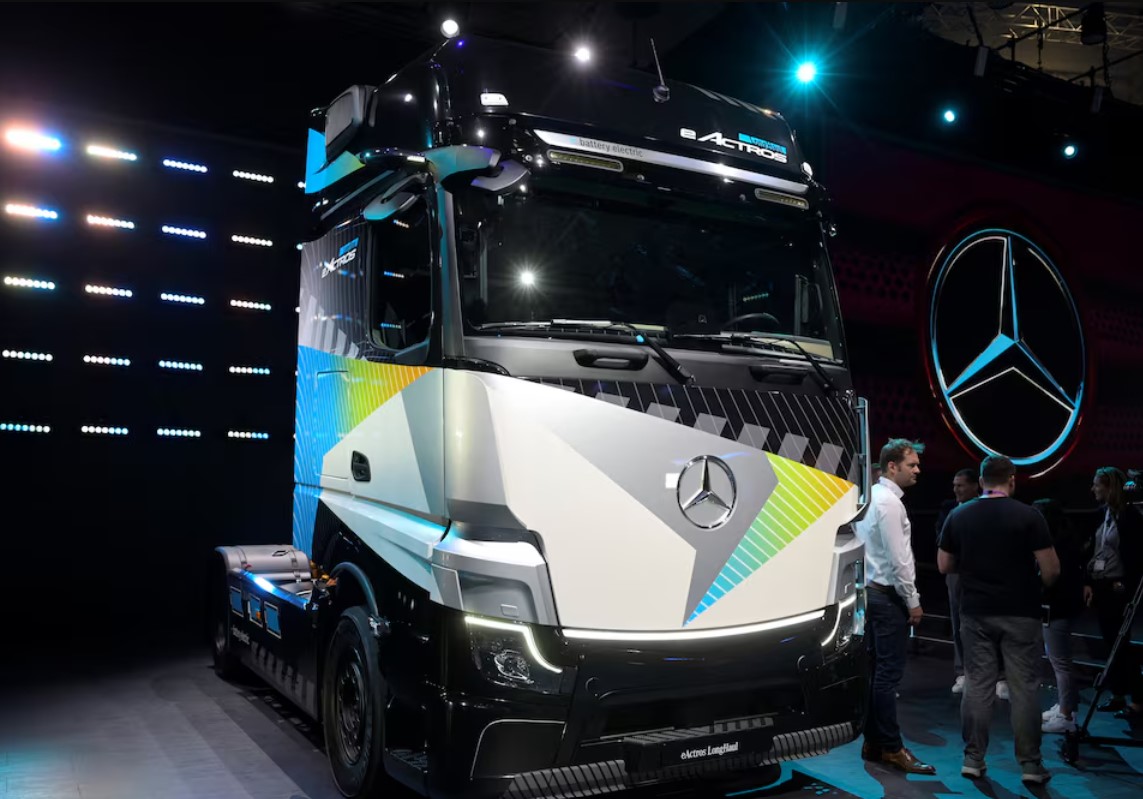Volvo & Daimler Join Forces: Tech Partnership to Slash Costs and Revolutionise Trucking

In a landmark move set to reshape the future of the trucking industry, European heavyweights AB Volvo (VOLVb.ST) and Daimler Truck (DTGGe.DE) have announced a strategic technology joint venture. This collaboration aims to significantly reduce costs, streamline operations, and lessen dependence on external suppliers by jointly developing a cutting-edge software-defined vehicle (SDV) program.
The partnership, unveiled this week, signifies a growing trend within the automotive sector – the recognition that software is rapidly becoming the core differentiator in vehicle performance and functionality. Traditional truck manufacturing has relied heavily on a complex web of suppliers, leading to high costs and potential vulnerabilities in the supply chain. By pooling their resources and expertise, Volvo and Daimler aim to create a more agile and cost-effective development process.
What is a Software-Defined Vehicle (SDV)?
An SDV is a vehicle where software plays a central role in controlling and managing its functions. This contrasts with traditional vehicles where hardware and software are largely separate entities. SDVs offer several advantages, including:
- Enhanced Customization: Software can be easily updated to add new features or tailor the vehicle to specific customer needs.
- Improved Efficiency: Software optimization can lead to better fuel economy and reduced emissions.
- Greater Safety: Advanced driver-assistance systems (ADAS) and autonomous driving features are heavily reliant on sophisticated software.
- Over-the-Air Updates: Vehicles can receive software updates remotely, eliminating the need for costly and time-consuming visits to a service center.
Synergy and Shared Benefits
The joint venture will focus on developing core software components that can be used across both Volvo and Daimler's truck portfolios. This includes areas such as:
- Base Vehicle Software: The foundational software layer that manages essential vehicle functions.
- Domain Controllers: Software modules responsible for controlling specific vehicle systems, such as braking, steering, and powertrain.
- Cloud Connectivity: Enabling seamless data exchange between the vehicle, the driver, and the fleet management system.
By sharing development costs and leveraging each other’s strengths, the companies anticipate significant cost savings and faster innovation. The partnership also allows them to tackle the complexities of SDV development more effectively, ensuring they remain competitive in a rapidly evolving market.
Industry Implications
This collaboration between Volvo and Daimler is likely to have a ripple effect across the entire trucking industry. It sets a precedent for increased cooperation between rivals in the face of disruptive technologies. Other manufacturers may be compelled to explore similar partnerships to remain competitive. Furthermore, the focus on SDVs will accelerate the adoption of advanced safety features, autonomous driving capabilities, and data-driven fleet management solutions, ultimately transforming the way goods are transported across Singapore and beyond.
The details of the joint venture, including the name, ownership structure, and timeline for implementation, are expected to be announced in the coming months. However, one thing is clear: the future of trucking is software-defined, and Volvo and Daimler are positioning themselves at the forefront of this revolution.





